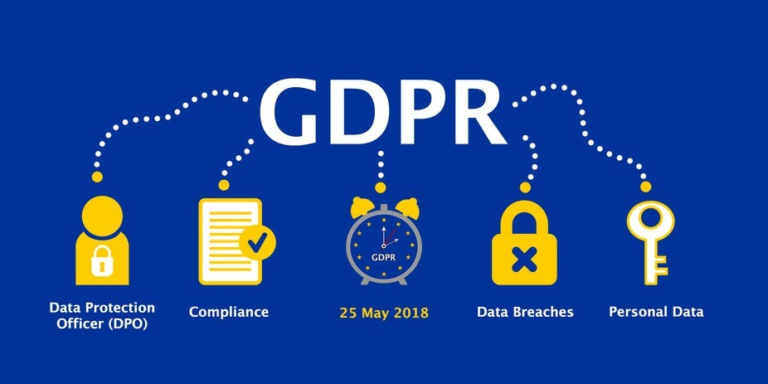The General Data Protection Regulation (GDPR) is a legislative framework established by the European Union in May 2018. The primary aim of GDPR certification is improving the protection of personal data for EU citizens. Alongside, it provides them with more control over their data and how it is used. But despite its European roots, GDPR has a global reach, affecting all organizations worldwide that process personal data of individuals from the European Economic Area.
Importance of GDPR Compliance
GDPR compliance certification is not only a legal requirement but also a demonstration of a company’s commitment to data privacy and security. It facilitates customer trust and loyalty, building a positive reputation. As consumers become increasingly aware of their information rights, securing their personal data becomes even more critical. Moreover, GDPR compliance aids businesses in maintaining data hygiene. By requiring businesses to only collect necessary data, GDPR ensures that enterprises are not overwhelmed with irrelevant information. It also mandates the implementation of robust systems to protect data from breaches, promoting improved IT security.
GDPR Compliance Requirements
To comply with GDPR, businesses must meet several requirements. These include: Consent: Businesses must obtain clear and explicit consent from individuals before collecting their data. They should also make it easy for individuals to withdraw consent. Access: Individuals have the right to access their personal data. Businesses should be capable of providing a copy of this data upon request.
Rectification: If an individual’s data is inaccurate or incomplete, they have the right to have it corrected. Businesses must cater to these requests promptly. Erasure: Also known as the ‘right to be forgotten’, individuals can request that businesses delete their personal data. Data Protection: Businesses must implement sufficient security measures to protect personal data from unauthorized access or leaks.
Data Protection Officer: For public authorities or businesses that carry out extensive data processing, a Data Protection Officer (DPO) must be appointed.
Non-Compliance : The consequences of failing to comply with GDPR are severe. There are two tiers of administrative fines that can be levied. In the lower tier, breaches (such as not having their records in order or not notifying the individual and the supervising authority about a breach) can amount to a fine of 10 million euros or 2% of the firm’s global turnover, whichever is greater. In the upper tier, more serious infringements (like violating the core principles related to data security or infringing on the rights of the subject) can command a fine of 20 million euros or 4% of the firm’s global turnover, again whichever is higher. Furthermore, non-compliance can result in extensive damage to a company’s reputation, leading to the loss of customer trust and eventual business opportunities.
Certification under GDPR cannot be underestimated. . Given the serious repercussions associated with data breaches – fines, reputational harm, and loss of consumer trust – organizations need to implement adequate data protection measures as soon as possible. Gaining GDPR certification not only aligns an organization with regulatory requirements but also creates a robust framework for handling personal data. Organizations can reassure their stakeholders that their data handling processes comply not only with legal but also international best practices.
Implementing GDPR Certification
Gaining GDPR certification requires in-depth knowledge of both its requirements and of how the GDPR operates in practice. Training and capacity development programs must take place for organizations to. Fully comprehend and incorporate GDPR requirements into their operations, then pass an assessment conducted by an approved certification body in order to demonstrate compliance. The process fosters an organization-wide culture of data privacy and security that forms a crucial aspect of its business practices.
Conclusion
GDPR compliance is a crucial aspect of modern business operations, especially. With the increasing focus on personal data privacy and security. Essentially, it is not only a legal obligation but a responsibility businesses should. Willingly take on to protect their customer’s personal information. Through GDPR compliance, businesses not only avoid hefty penalties and reputational. Damage but also enhance their overall data management and security, ultimately building stronger relationships with customers and stakeholders. Given these benefits, GDPR compliance should be seen not as a burden but as a key business opportunity. Visit INTERCERT for certifications.


